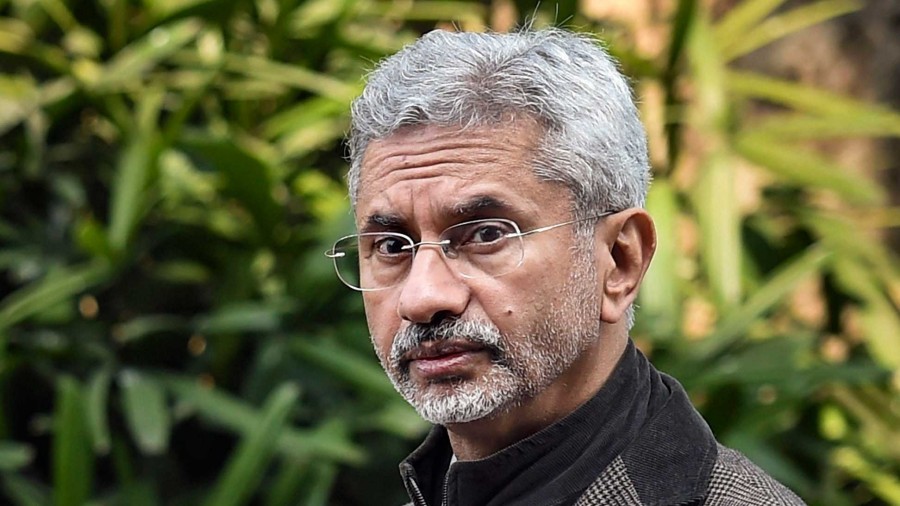Asserting that peace and tranquillity on the border is essential for development of bilateral relations, India has told China that disengagement at all friction points is necessary to contemplate any de-escalation of troops even as the two sides agreed to establish a hotline contact for timely exchange of views.
Last week, armies of the two countries which have been locked in a military standoff in eastern Ladakh concluded withdrawal of troops and weapons from north and south banks of Pangong Tso in the high-altitude region.
Releasing details of External Affairs Minister S Jaishankar's 75-minute telephonic conversation with his Chinese counterpart Wang Yi on Thursday, the Ministry of External Affairs (MEA) said in a statement on Friday that China was told that bilateral relations have been impacted severely over last year.
"EAM said that Boundary Question may take time to resolve but disturbance of peace and tranquillity, including by violence, will inevitably have a damaging impact on the relationship," the ministry said.
The two ministers agreed to remain in touch and establish a hotline, it added.
The two leaders discussed the situation along the Line of Actual Control (LAC) in eastern Ladakh and issues related to overall India-China relations.
According to a late-night press release issued by the Chinese Foreign Ministry in Beijing, Wang said China and India should firmly follow the right path of mutual trust and cooperation between neighbouring major countries, and not go astray with suspicion and distrust nor fall back on a road of "negative retrogression".
Wang, also a State Councilor, noted that the two countries need to properly handle the border issue so as to prevent the bilateral ties from trapping into a "vicious cycle" because of it.
Jaishankar referred to their meeting in September 2020 in Moscow where the Indian side had expressed its concern on provocative behaviour and unilateral attempts of the Chinese side to alter the status quo, according to the MEA statement.
Jaishankar said that during their meeting in Moscow last year they had agreed that the situation in the border areas was not in the interest of either side and decided that the border troops of both sides should continue their dialogue, quickly disengage and ease tensions.
The EAM noted that the two sides had maintained continuous communication since then through both diplomatic and military channels. This had led to progress as both sides had successfully disengaged in the Pangong lake area earlier this month.
Noting the completion of disengagement in the Pangong lake area, the EAM emphasized that both sides should now quickly resolve the remaining issues along the LAC in eastern Ladakh.
At the 10th round of the senior commanders' meeting least week, India is learnt to have insisted on a faster disengagement process in areas such as Hot Springs, Gogra and Depsang to defuse tension in the region.
Jaishankar told Wang that once disengagement is completed at all friction points, then the two sides could also look at broader de-escalation of troops in the area and work towards restoration of peace and tranquillity.
Wang, on his part, expressed satisfaction at the progress made so far and said it was an important step forward for restoration of peace and tranquillity in the border areas, according to the MEA statement.
Wang also spoke about the need to improve management and control in the border areas, while Jaishankar highlighted that both sides had always agreed that maintenance of peace and tranquillity in the border areas was essential basis for development of bilateral relations.
"A prolongation of the existing situation was not in the interest of either side. It was, therefore, necessary that the two sides should work towards early resolution of remaining issues. It was necessary to disengage at all friction points in order to contemplate de-escalation of forces in this sector. That alone will lead to the restoration of peace and tranquillity and provide conditions for progress of our bilateral relationship," it said.
Wang also noted that the Indian side had proposed "three mutuals" -- mutual respect, mutual sensitivity and mutual interests -- as the approach to the relationship. He also agreed on the importance of taking the long view of ties between the two neighbours.
According to the Chinese Foreign Ministry release, Wang also said border disputes are an "objective reality" and need to be attached adequate attention and taken seriously. However, the border issue is not the whole story of China-India relations, and should be placed in a proper position in their relationship, he said.
"Wang said that the rights and wrongs of last year's situation in China-India border areas are very clear, and profound lessons should be drawn from the past," according to the Chinese foreign ministry statement.
The border standoff between the Indian and Chinese militaries erupted on May 5 last year following a violent clash in the Pangong Lake area and both sides gradually enhanced their deployment by rushing in tens of thousands of soldiers as well as heavy weaponry.
Subsequently, 20 Indian soldiers were killed in a fierce hand-to-hand combat on June 15 in Galwan Valley, an incident that marked the most serious military conflicts between the two sides in over four decades. Eight months after the confrontation, China admitted that its four soldiers were killed in the fight.










